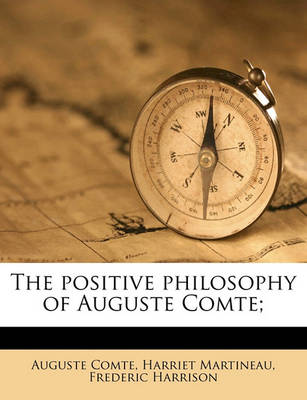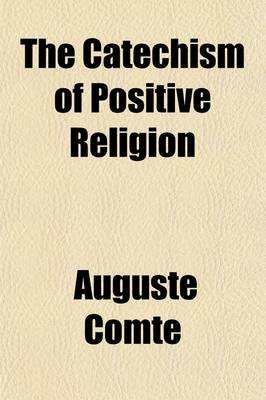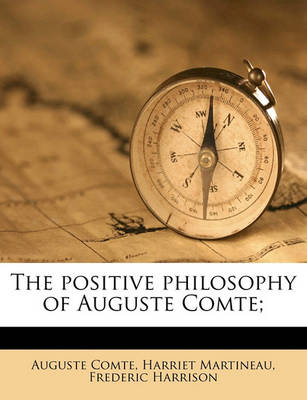Cambridge Library Collection - Religion
4 total works
The Positive Philosophy of Auguste Comte; Volume 2
by Auguste Comte, Harriet Martineau, and Frederic Harrison
Published 2 January 2010
The Positive Philosophy of Auguste Comte is a condensed English version of the French philosopher's controversial work, freely translated by Harriet Martineau and published in two volumes in 1853. Martineau's abridged and more easily digestible version of Comte's work was intended to be readily accessible to a wide general readership, particularly those she felt to be morally and intellectually adrift, and Comte's philosophy indeed attracted a significant following in Britain in the later nineteenth century. Comte's 'doctrine' promoted personal and public ethics and social cohesion based no longer on metaphysics but on strict scientific method, and anticipated twentieth-century logical positivism and secular humanism. The second volume of this translation is devoted entirely to Comte's new science of 'social physics' and human progress, and outlines his theories about society and its development through various phases - theological, humanistic and finally scientific.
In A General View of Positivism French philosopher Auguste Comte (1798-1857) gives an overview of his social philosophy known as Positivism. Comte, credited with coining the term 'sociology' and one of the first to argue for it as a science, is concerned with reform, progress and the problem of social order in society. In this English edition of the work, published in 1865, he addresses the practical problems of implementing his philosophy or doctrine, as he also refers to Positivism, into society. He believes that society evolves through a series of stages that are ruled by social laws and culminate in a superior form of social life. During this reorganisation of society, which will find its greatest supporters among women and the working class, a 'new moral power' will emerge. Under the motto 'love, order and progress' Comte wishes humanism to replace organised religion as the object of spiritual worship.
This English edition of The Catechism of Positive Religion was published in 1891, thirty-four years after the death of Comte, the French philosopher of science and politics and founder of positivism, whose work was widely read in the later nineteenth century. Comte's self-published French original of 1852, translated here, outlines his progressive ideal of 'sociocracy', which would provide a systematic basis, free of metaphysics, for intellectual and moral transactions among humans. Congreve's edition, in common with others, divides the book into five parts. The introduction contains two dialogues, entitled General Theory of Religion and Theory of Humanity. Parts 1-3 respectively consider the Positivist's private and public 'worship'; 'doctrine', including the external world and human society and ethics; and 'regime' or way of life, private and public. The final two dialogues cover polytheism, monotheism and theocracy. This book remains of interest as an early precursor of secular humanist ethics.
The Positive Philosophy of Auguste Comte; Volume 1
by Auguste Comte, Harriet Martineau, and Frederic Harrison
Published 1 January 2010
The Positive Philosophy of Auguste Comte is a condensed English version of the French philosopher's controversial work, freely translated by Harriet Martineau and published in two volumes in 1853. Martineau's abridged and more easily digestible version of Comte's work was intended to be readily accessible to a wide general readership, particularly those she felt to be morally and intellectually adrift, and Comte's philosophy indeed attracted a significant following in Britain in the later nineteenth century. Comte's 'doctrine' promoted personal and public ethics and social cohesion based no longer on metaphysics but on strict scientific method, and anticipated twentieth-century logical positivism and secular humanism. The first volume of this translation contains Parts 1 to 5 and sets out the nature and importance of positivism, leading on to an overview of the 'positive sciences': mathematics, astronomy, physics, chemistry and biology.



